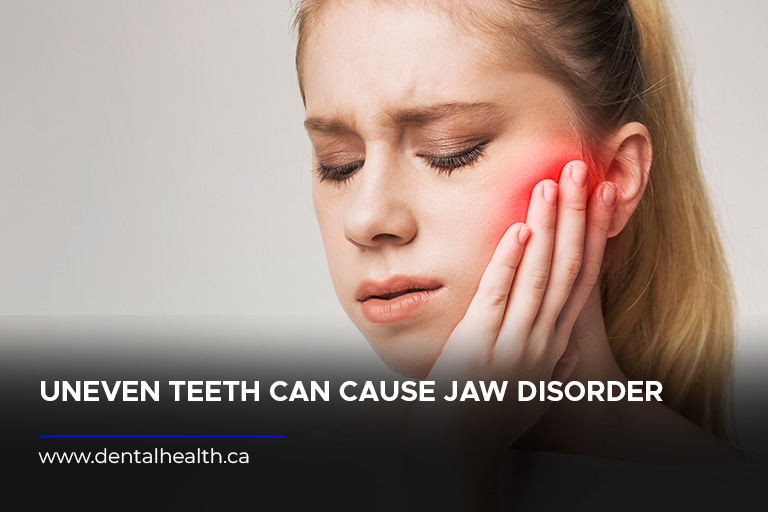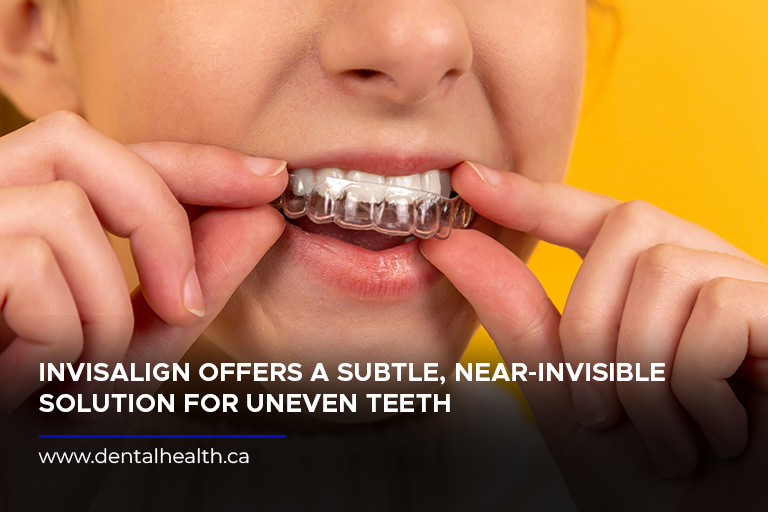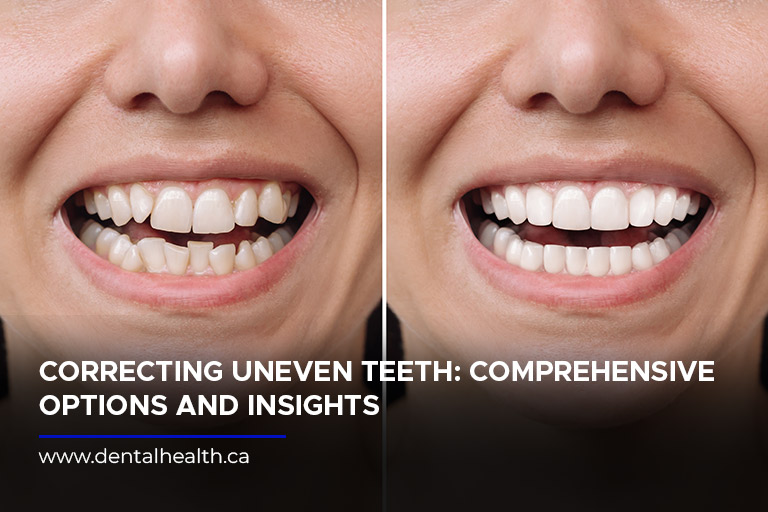Everyone desires the ability to exude confidence through their cheerful and confident smiles. However, if you happen to possess uneven teeth, you might feel hesitant to showcase your gleaming white teeth. Uneven teeth are a common dental concern, but the good news is that there exist numerous effective solutions to enhance the appearance of uneven teeth, granting you the freedom to smile without reservation.
The field of dentistry has seen remarkable progress over the past few decades. In the past, orthodontics had limited options to address misaligned teeth, primarily relying on traditional metal braces. Nowadays, there is a wide array of options for uneven teeth correction .
Causes of Uneven Teeth
- Genetics
Genetic predispositions significantly influence the development of uneven teeth. The inherited characteristics can determine the size of the jaw and the arrangement of the teeth, contributing to issues such as overcrowding or gaps between teeth. For instance, a smaller jaw might not have enough space to accommodate all teeth, causing them to grow in a crooked manner. Similarly, larger-than-average teeth in a regular-sized jaw can lead to crowding. Additionally, congenital conditions like cleft palate or genetic disorders affecting tooth development can also lead to uneven teeth.
- Poor Dental Habits
Childhood habits such as thumb sucking, prolonged pacifier use, or tongue thrusting exert pressure on the teeth and jaw, leading to misalignment. These habits, especially if continued beyond the age of 3-4, can alter the shape of the jaw, affect the position of the teeth, and disrupt normal oral development. The constant forward pressure against the teeth can cause protrusion of the upper front teeth or create an open bite, where the upper and lower teeth do not meet.
- Trauma or Injury
Traumatic incidents affecting the jaw or teeth, such as falls, sports injuries, or accidents, can lead to immediate or progressive unevenness of teeth. Such impacts can shift teeth out of place, fracture them, or even knock them out. In children, trauma to primary teeth can affect the growth and positioning of permanent teeth. Dental trauma may not always result in visible misalignment immediately but can cause gradual shifting of teeth over time.
- Tooth Loss or Decay
The loss of teeth, whether from decay, gum disease, or injury, can have a domino effect on the remaining teeth. Adjacent teeth may tilt or drift into the space left by a missing tooth, leading to misalignment. This shifting can also affect the bite, potentially causing issues with chewing and jaw joint function. Also, tooth loss can lead to bone loss in the jaw, altering its shape and impacting the alignment of surrounding teeth.
- Age-Related Changes
Over time, natural wear and tear on teeth can lead to changes in their alignment. As people age, the bone density in their jaws can decrease, and the ligaments holding the teeth in place may relax, allowing teeth to shift. Additionally, teeth grinding (bruxism) can wear down tooth surfaces, altering the bite and causing teeth to shift. These changes are often gradual and subtle but can accumulate over the years, leading to noticeable unevenness.
Health Risks of Uneven Teeth

- Oral Hygiene Challenges
Crooked teeth can create tight spaces and overlaps, making it difficult to clean between teeth effectively. This can lead to plaque and food buildup, increasing the risk of cavities, gum disease, and bad breath.
- Increased Risk of Tooth Wear
Misaligned teeth may experience uneven pressure during biting and chewing, resulting in accelerated tooth wear and potential damage over time. This can lead to tooth fractures, sensitivity, and a need for dental restorations.
- Temporomandibular Joint (TMJ) Issues
Crooked teeth can disrupt the proper alignment of the jaw, contributing to TMJ disorders. Symptoms may include jaw pain, headaches, and difficulty in opening or closing the mouth.
- Difficulty Chewing
Crooked teeth can make it challenging to bite and chew food effectively, potentially leading to digestive issues and reduced nutrient absorption. This can affect overall health and well-being, emphasizing the importance of orthodontic correction for both dental and systemic health.
- Reduced Self-Confidence
Crooked teeth can affect an individual’s self-confidence and self-esteem, leading to social and psychological issues. People with misaligned teeth may feel self-conscious about their smiles, impacting their overall quality of life and mental well-being.
Dental Treatments Options for Uneven Teeth

- Braces
Traditional braces, comprised of wires and brackets, serve as a conventional orthodontic treatment to rectify dental misalignment. By exerting constant pressure, they gradually reposition teeth to achieve the desired alignment, resulting in improved oral health and aesthetics.
Invisalign is a contemporary alternative to braces , presenting clear, removable aligners customized to each patient’s dental needs. These virtually invisible aligners discreetly and gradually shift teeth into their correct positions, offering a subtler solution for fixing uneven teeth .
- Veneers
Dental veneers consist of ultra-thin, tailor-made shells meticulously crafted to cloak the frontal surfaces of teeth. These veneers effectively address minor misalignments and enhance the cosmetic appearance of teeth, granting a flawless smile transformation.
- Dental Bonding
Dental bonding entails the application of a tooth-coloured resin onto the tooth’s surface, subsequently hardened with specialized lighting. This procedure is employed to reshape individual teeth, refining overall alignment and appearance, and is an efficient method for minor dental adjustments.
- Contouring and Reshaping
This technique necessitates the precise removal of minute amounts of tooth enamel, enabling the alteration of tooth shape, length, or surface texture. It offers an effective means of enhancing tooth alignment by strategically modifying specific teeth.
Dental implants offer a permanent solution for individuals grappling with tooth loss. These artificial tooth roots are surgically placed in the jawbone, effectively replacing missing teeth while preventing adjacent teeth from shifting, ensuring a stable and enduring dental structure.
Correcting uneven teeth enhances oral health and boosts confidence. It’s essential to consult a professional to determine the most suitable treatment for individual needs. For personalized advice and teeth alignment options , contact Kingsway Family Dentistry, your trusted dentist in Beamsville, Ontario , at (905) 563-4001. Our team is dedicated to providing quality dental care, ensuring your journey to a perfect smile is smooth and successful.

